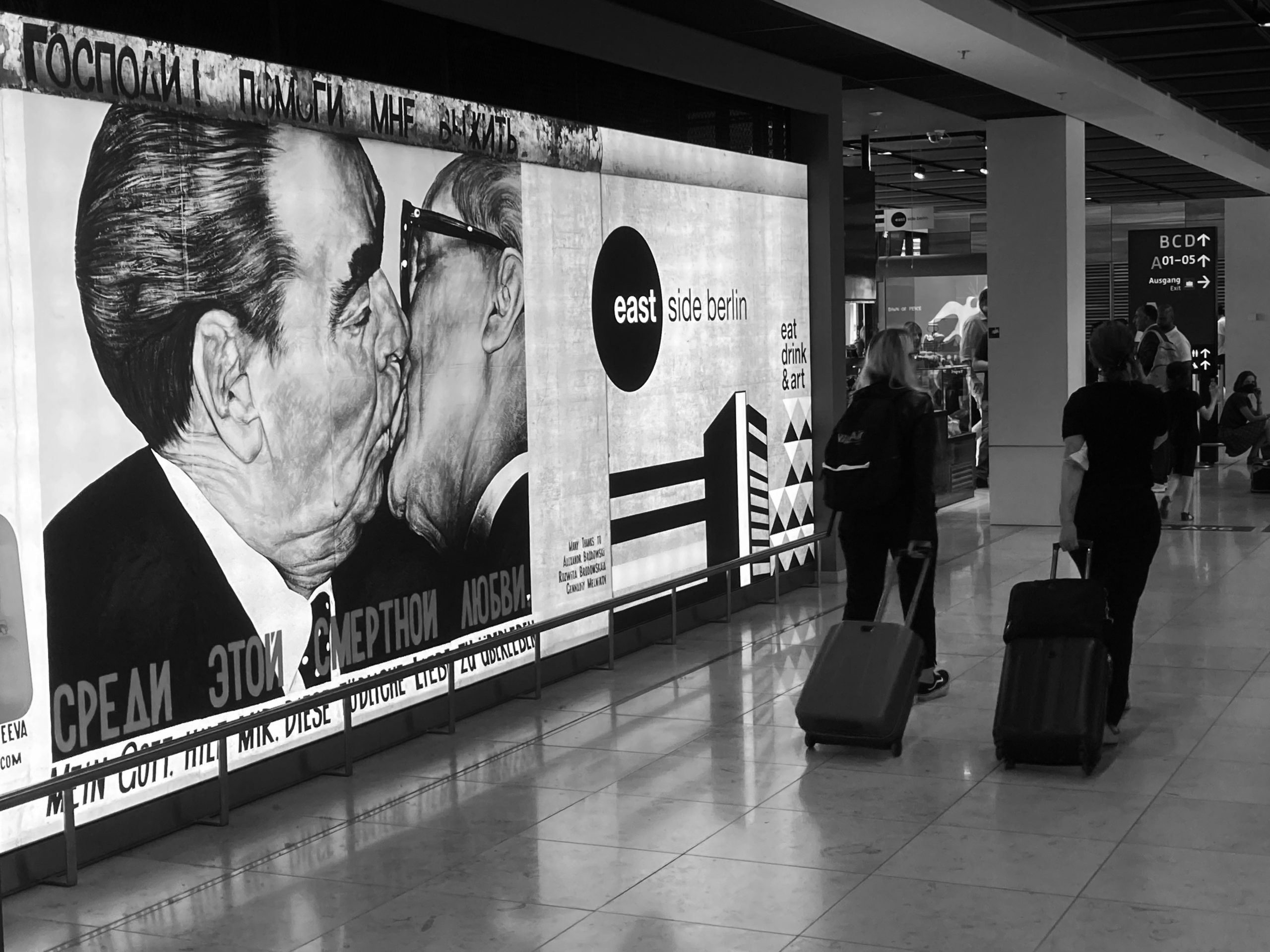Originally published July 2022.
Just after the fall of the Berlin Wall, I moved to the city for what proved an intense and life-changing experience. Last week I travelled there for the first time since Covid, starting and ending in the recently opened BER airport, the Great White Elephant of our age. In the 30 years since 1992, what I thought of as ‘the blank page’ of Berlin’s built environment has been reshaped by major infrastructure, such as the impressive Hauptbahnhof completed in 2006. The last big piece of that post-Cold War transformation was the new BER airport, which was already being planned in the early 90s. Ultimately, it took so long to become operational that Berlin is now on the edge of a second Cold War with Russia.
BER’s construction started in 2006 and ended in 2012. After 100 months of delay caused by fire regulations and political incompetence, it finally opened in November 2020. The unfortunate airport thus became operational in a Covid winter when there were hardly any passengers to serve. In a rigorous country which values punctuality, BER became a national disgrace, costing taxpayers over €6bn. Even a Brandenburg village had been uprooted to create 360,000sqm of unused buildings.
“In the gleaming ghost station under the terminal, trains stopped but without opening their doors”
In researching my book about Berlin* in 2016, I explored the then-empty airport which had already stood still for four years.In the gleaming ghost station under the terminal, trains stopped but without opening their doors. It felt uniquely weird, like the set of a sci-fi disaster movie. The unforeseen irony was that Coronavirus would freeze all Europe’s airports four years later. The Berlin airport sci-fi movie would have a bigger sequel.
First impressions of the new main terminal were of light, airy volumes and attractive materials. Judging from both online reviews and my personal experience, however, there are teething troubles for the user. Baggage deliveries and security checks are often slow and toilet blocks remain out of order. BER does feel smaller than I had expected and the food court offer, for example, is very limited. Like many airports across Europe in 2022, there are just not enough staff. The abrasive quality of those staff, however, remains a Berlin-specific signature. Some I met were proud of their new home and some were just plain rude.
Berlin has often been a city of sharp contrasts and I found a charming one in the airport station. Underneath all the high-tech German engineering was a clanking S-Bahn train, Berlin’s rolling stock from Cold War times. My train ride to Bahnhof Zoo took a whole hour, a reminder that the airport is far from the western centre. As the S-Bahn passed from the (still empty) Brandenburg countryside across the former line of the Wall, I could suddenly see how the airport is a magnet for the long-term growth of eastern Berlin, with suburbs like Adlershof visibly flourishing.
The contrasts and surprises continued inside the city. In the western centre, a resident street parking permit still costs less than €1a month, even if four-star hotels last week were quoting over €500 a night. Berlin, a financial backwater, was famously described by a former mayor as “poor but sexy” and attending a property investor conference there somehow felt wrong. Sure enough, sitting on the terrace of the new luxury Waldorf Astoria hotel, my group was abused by an ageing hippy on the pavement whose tattoos were much more the spirit of the real Berlin than the blue suits of the investors. The vibe at that conference certainly felt frosty – perhaps to an extent because this Mitteleuropa city was the frontline of the first Cold War and a place where the presence of Russian soldiers is a recent memory.
Last week, Berlin and its new airport seemed like a microcosm of the supply/demand imbalance stressing investors in Europe. ‘Staff shortages’ delayed my 1.5 hours return flight by 2.5 hours, one small example of how, since 2020, supply and demand have been tugged out of balance. First no demand, then no supply, then strong demand. In this famously inexpensive city, low prices are shooting up as a result.
BER may have minor operational flaws, but as in Schiphol or Heathrow, the short-term issue is lack of local staff, amplified by wider problems with international supply chains. In the longer term, perhaps the final irony of this jinxed airport is that it was opened in a lockdown which has made people question whether they should even fly at all.
*https://www.amazon.co.uk/Thousand-Days-Berlin-Property-Pioneering/dp/2956007408








